May 22, 2025 | 22:49 GMT +7
May 22, 2025 | 22:49 GMT +7
Hotline: 0913.378.918
May 22, 2025 | 22:49 GMT +7
Hotline: 0913.378.918
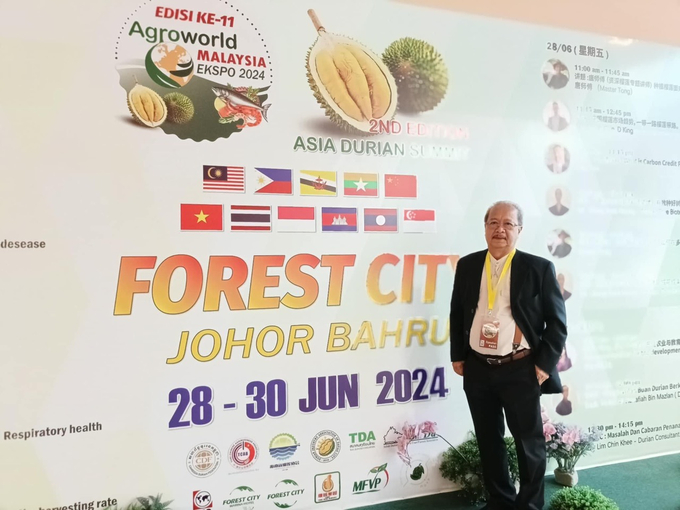
Durian expert Sakda Sinives attended the 2nd Asian Durian Conference in Johor Bahru, Malaysia.
On June 28 in Johor Bahru, Malaysia, within the framework of the 2nd Asian Durian Conference, Thai agricultural expert Sakda Sinives analyzed the trends of the durian market in China. Below is his speech at the Conference.
It is well known that China is the largest market for durians from ASEAN countries.
In 2023, China imported a significant amount of durians, totaling over 1,425,922 tons, marking a continuous increase from previous years. The demand for durians in the Chinese market is expected to grow in the future, driven by their rising popularity among Chinese consumers. Although there is no clear data on the number of Chinese people consuming durians each year, it can be said that durians are highly popular in China, especially in major cities like Beijing, Shanghai, and Guangzhou.
Given the large imports of durians in recent years, it is estimated that millions of people in China consume durian annually, reflecting the trend of increasing consumption of tropical fruits among Chinese consumers. As the popularity of durians grows yearly, it is expected that the peels and seeds of durians will contribute to increasing waste problems, as durians have an edible portion of only about 30-35% of their total weight, with the remaining 65-70% being inedible peels and seeds.
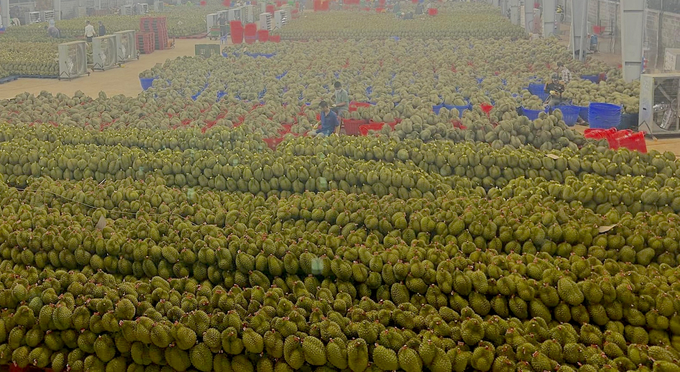
Durian packaging factory in Thailand. Photo: Sakda Sinives.
According to China's customs data in 2023, China imported 928,976 tons of fresh durians from Thailand, 493,183 tons from Vietnam, and 3,763 tons from the Philippines, totaling 1,425,922 tons. This results in approximately 456,295 tons of edible durian flesh and about 969,627 tons of inedible waste. This massive amount of biological waste requires proper treatment in China. The organic waste from durian peels can cause various forms of pollution, including:
1. Greenhouse gases:
- Methane (CH₄) from anaerobic decomposition of organic waste in landfills.
- Carbon dioxide (CO₂) from aerobic decomposition.
- Nitrous oxide (N₂O) from nitrogen decomposition in organic waste.
2. Foul odors: Decomposition of organic waste releases unpleasant odors, causing annoyance and health issues.
3. Water pollution: Leachate from decomposing waste can contaminate water sources, affecting the environment and human health.
4. Hygiene problems: Accumulated organic waste can breed flies and vermin like rats, spreading diseases.
Given that only 30-35% of a durian is edible and 65-70% is waste, exporters to China incur transportation costs for this waste. Assuming transportation costs for a fresh durian container (18 tons) from eastern Thailand to Jiangnan Market, Guangdong Province, are $10,000 per trip, exporters lose $6,500-7,000 per container on waste transport. With approximately 50,000 containers exported from Thailand in 2023, this translates to a transportation cost of $325-350 million (11.7-12.6 billion THB) for waste alone.
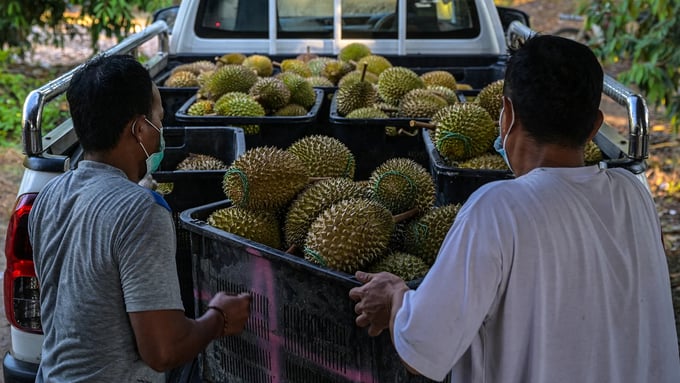
Exporters need to comply with China's strict regulations on reducing bio-waste from durian peels. Illustration photo.
Therefore, exporting only the edible portion of durians to China can significantly reduce transportation costs and waste, increasing profits and export value. This would also provide Thai farmers with a more stable income from durian sales, allowing them to focus on quality and flavor rather than size. It would reduce the use of chemicals for pest and disease control, ensuring safer produce for consumers and a healthier environment for farmers. Additionally, farmers could convert organic waste into affordable compost, benefiting agriculture and reducing greenhouse gas emissions.
Meanwhile, changing consumer behaviors among the younger generation, with smaller households and faster-paced lives, increases the demand for convenience. Selling pre-cut or frozen durian flesh suits modern consumers, aligning with online and platform-based sales and efficient logistics. Consumers can buy according to their desired quantity and preferences, reducing the risk of purchasing whole durians with unknown flesh quality.
Therefore, the market direction for fresh-cut durians in China and globally is a promising future trend, influenced by market mechanisms and consumer preferences, particularly the Chinese government. China is aware of the waste problem from durian peels, but the benefits for relevant authorities between fresh and pre-cut durians vary. Importing pre-cut durians changes the import category from agricultural products to food, affecting customs revenue and trade or political leverage related to phytosanitary issues.
This shift is inevitable, and its timing depends on the aforementioned conditions.
Translated by Quynh Chi
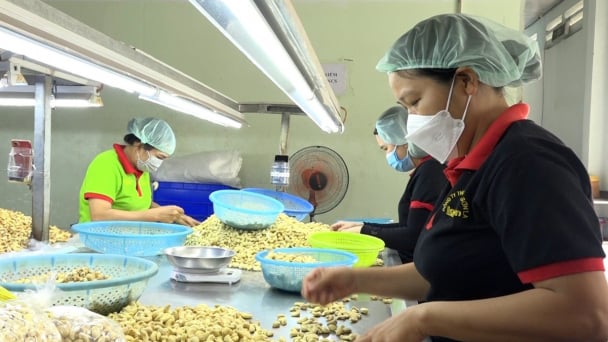
(VAN) Market expansion is a matter of survival for Vietnamese businesses amid fierce competition and global supply chain fluctuations.
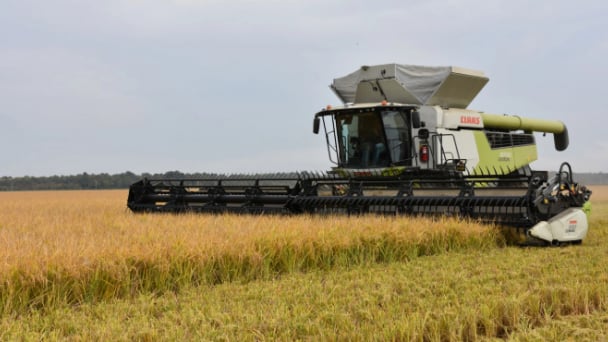
(VAN) Global market prospects for U.S. long-grain rice for the upcoming marketing year.
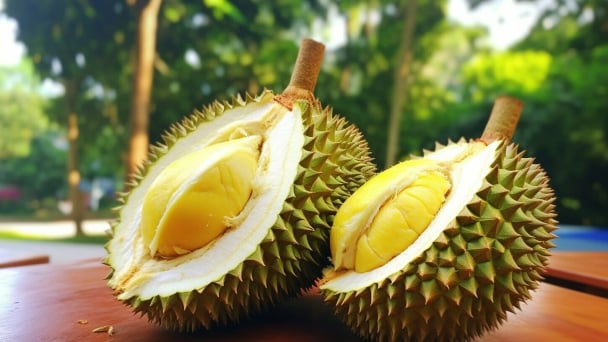
(VAN) China’s General Administration of Customs started permitting fresh durian shipments from Cambodia after a phytosanitary protocol was signed with the Cambodian Ministry of Agriculture in late April.
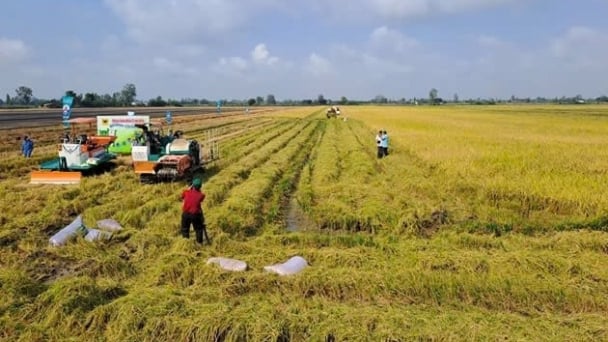
(VAN) To operate carbon market, one of the key issues is determining which types of 'commodities' meet the standards to be traded on the market.
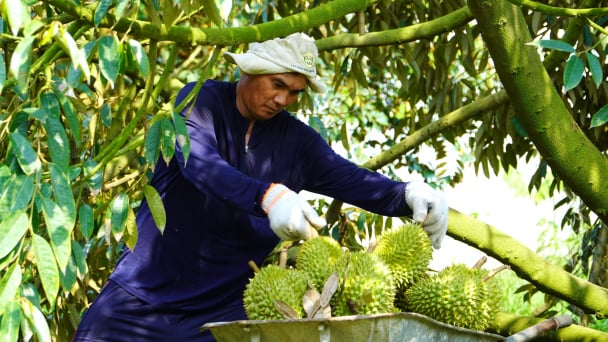
(VAN) Durian-producing localities need to coordinate more effectively with central authorities to improve the traceability, monitoring, and response systems in case of violations.
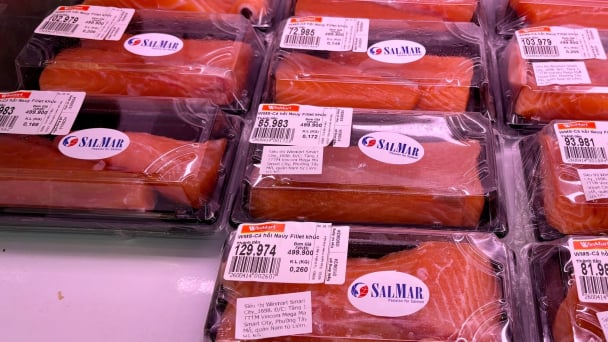
By minimizing waste, embracing modern technology, and expanding into niche markets, SalMar - the second largest producer of Atlantic salmon in the world has built a successful strategy to conquer the global market.
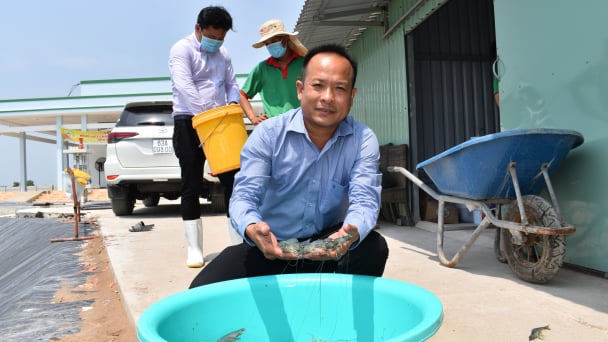
(VAN) One of the key factors for businesses to effectively take advantage of tariff preferences under these FTAs is the rules of origin.